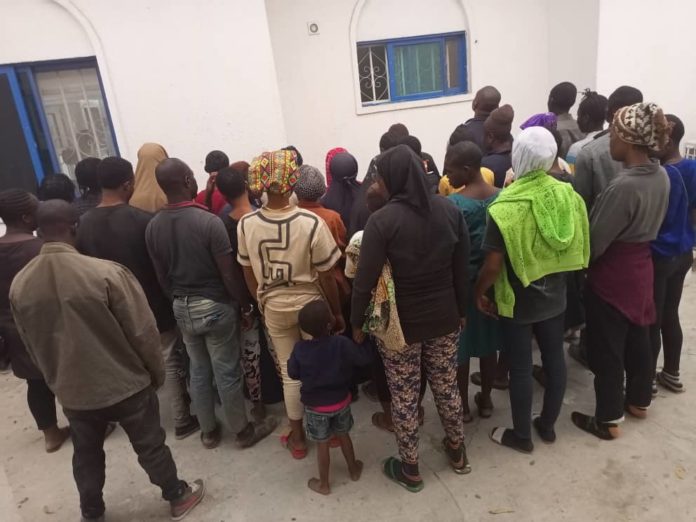32 persons have been convicted by the National Agency for the Prohibition of Trafficking in Persons (NAPTIP) for various crimes related to human trafficking between January and May 2023.
Nigeriacrime.com learned that the agency also rescued no fewer than 19,000 trafficked persons since its inception.
This was disclosed by the Director of Intelligence and Public Enlightenment, NAPTIP, Josiah Emerole, at a one-day national learning, experience sharing and policy brief dissemination on combating human trafficking and unsafe migration organized in Abuja over the weekend by Women Aid Collective (WACOL) with the support of the Swiss Government, managed by the Federal Department of Foreign Affairs (FDFA).
According to Emerole, “Between January and May 2023, NAPTIP has secured the conviction of 32 persons for various offenses related to human trafficking. This is in addition to the no fewer than 19,000 persons rescued by the agency since its inception.”
Speaking at the event, the Former Controller-general of the Nigerian Immigration Service, Muhammad Babandede, identified bad governance as a major factor promoting illegal migration and trafficking.
He said, “Human trafficking is not only a matter of crime. Governance is a major issue. The issue of bad governance is the underlying factor that promotes illegal migration and trafficking. It is important to address this issue if we want to effectively combat human trafficking and unsafe migration.”
On her part, the Executive Director of WACOL, Prof. Joy Ngozi Ezeilo, expressed concern that one in every four Africans trafficked is a Nigerian.
According to her, Nigeria is hugely affected as both a source country, a transit & destination for human trafficking.
She said, “It is disheartening to note that one in every four Africans trafficked is a Nigerian. This is a serious issue that requires urgent attention from all stakeholders.
“I believe we’re not doing enough prevention, because prevention is key to curbing human trafficking, and also addressing the root causes, because if you look at the push and pull factors, you will find that poverty, youth unemployment, security issues, inequalities, exclusion, conflict, even corruption, all fuel and exacerbate human trafficking.”
The event was attended by stakeholders from various sectors, including government officials, civil society organizations, and the media, among others.
There were also presentations and discussions on ways to combat human trafficking and unsafe migration in Nigeria.

